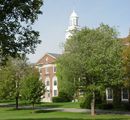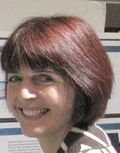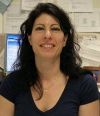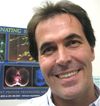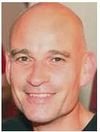Biology and physiology of stem cells in the CNS
The scope of this symposium is to provide an introduction to several key aspects of stem cell based therapy as currently applied to the repair of the central nervous system. With the recent start of the first FDA-approved trials to use embryonic stem cell-derived transplants for spinal cord injury repair, cell-therapeutic treatments for CNS injuries are poised to transition from concept to clinic. This forum invites participants to discuss current approaches and challenges.
Chris Proschel will present an overview of the current success in cell transplantation therapies in experimental spinal cord injury and will highlight the need to identify the optimal graft cell population to ensure full benefit can be achieved. He will also discuss the challenges of translating animal model data to the human system.
Dr. Bieberich will focus his presentation on the challenge that is presented in any given stem cell application, which is to control and eliminate graft derived tumor formation. He will discus how stem cell polarity and survival are controlled on the molecular level and will discuss novel biochemical approaches that are geared towards the elimination of residual tumor stem cells that are often contaminating stem cell grafts leading to tumor formation.
Any successful cell therapy is dependent on the proper integration of graft cells into an existing host environment. Dr. Firestein will explore how biomaterials and their interaction with neural cells can be used to generate a permissive host environment that allows and support neural cell survival and function.
Session organizer
Prof. Margot Mayer-Pröschel is Associate Professor in the Department of Biomedical Genetics, University of Rochester, NY.
Dr. Mayer-Pröschel received her diploma in microbiology from Julius Maximilian University, Germany in 1986. She received her Ph.D. in Virology/Microbiology from the Inst. Of Virology & Immunology at the University of Wurzburg, studying under Dr. V. ter Meulen. She performed postdoctoral research at the Ludwig Institute for Cancer Research, London, UK with Prof. Mark Noble, then in 1995 joined the Huntsman Cancer Institute at the University of Utah as an assistant professor. In 2000 she joined the Department of Biomedical Genetics at the University of Rochester. She is now also a member of the Rochester Stem Cell and Regenerative Medicine Institute.
Dr. Mayer-Pröschel's research aims to understand the biological and molecular mechanisms governing precursor cell division, differentiation and survival in the brain.
- Identification of lineage restricted precursor cells
- CNS precursor cells and their derivatives in human disease and tissue repair paradigms: Gestational iron deficiency, Ataxia Telangiectasia (AT), spinal cord injury repair and human viral infections as a contributor to failure of repair.
Confirmed speakers
- Prof. Bonnie Firestein, Dept. of Cell Biology & Neuroscience, Rutgers University. Dr. Firestein works on the biology of synapse formation and dendritic branching, a process that is necessary for successful stem cell therapy.
- Prof. Christoph Pröschel, Department of Biomedical Genetics, University of Rochester. Dr. Pröschel is a stem cell biologist whose research studies the generation of stem ells from human ES and iPS cells for therapeutic applications. He will give an overview of the stem cell field, chemical induced iPS technology and and example of the application for disease processes.
- Dr. Erhard Bieberich, Medical College of Georgia, Augusta, GA. Dr Bieberich is a chemist whose research focuses on the significance of lipid-dependent cell signaling pathways for cancer cell and cancer stem cell biology.
Program
Friday, June 4, 8:30 AM - 11:05 AM
- Biology and Physiology of Stem Cells in the CNS
- Kellas 104
Organizer/Presider: Margot Mayer-Proschel
8:30 Opening Remarks
8:35 281 Stem-Cell Therapies for the Central Nervous System: From Concept to Cure. Chris Proschel1,2, Jeannette Davies3, Chung-Hsuan Shih1, Michelle Lacagnina1, Margot Mayer-Proschel1, Mark Noble1,2 and Stephen Davies3, (1)University of Rochester, (2)University of Rochester, (3)University of Colorado, Anschutz Medical Campus
9:15 Discussion
9:20 282 Targeting Drugs to Stem Cells and Cancer Stem Cells: Common Physiology Making a Difference in Treatment. Erhard Bieberich, Medical College of Georgia
10:00 Discussion
10:05 Intermission
10:20 283 Regulation of Dendrite Arborization by Substrate Stiffness. Bonnie L. Firestein, Rutgers University
11:00 Discussion
